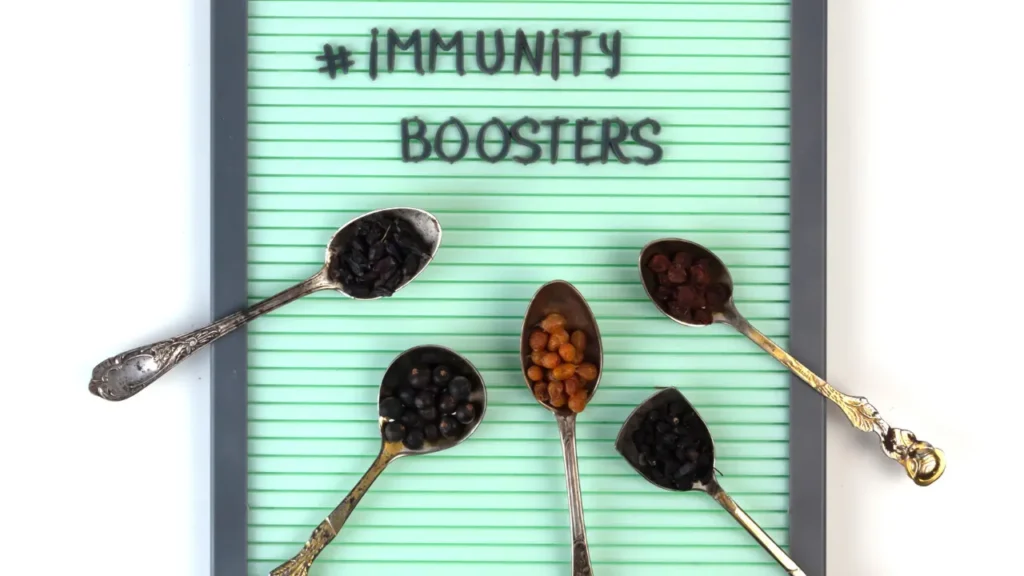Acetyl-L-glutamine (AGA), a derivative of the amino acid L-glutamine, has grown in popularity as a nutritional supplement in recent years due to its potential to improve gut health, immunological function, and cognitive performance. This article thoroughly reviews the nature of AGA, its health advantages, ideal dosage, side effects, potential drug interactions, and safe use of this nutritional supplement. The essay also explores the chemistry of AGA and the physiological processes through which it affects the body and brain.
You May Also Like:
Horbaach Lion’s Mane Mushroom Extract Reviews: A Leading Herbal Nootropic Product
AGA: Benefits, Dosage, Side Effects, Drug Interactions, And Other Important Information is an original (NootropicsPlanet) article.
Nature of Acetyl-L-Glutamine
The acetylated form of L-glutamine, or AGA, is well known for playing crucial roles in the production of proteins, cell division, and energy consumption. The L-glutamine molecule in AGA is linked to an acetyl group, which increases the amino acid’s stability and bioavailability in the body. AGA is a prime choice for improving brain health and cognitive function because of the ease with which it can pass over the blood-brain barrier, thanks to the acetylation process.
Health Benefits of Acetyl-L-Glutamine
- AGA has been investigated for its potential to improve cognitive performance, partly because of its ability to pass the blood-brain barrier. Once within the brain, AGA is a precursor for glutamate, a crucial chemical involved in memory, learning, and other cognitive functions. Additionally, glutamate serves as a precursor for the inhibitory neurotransmitter -aminobutyric acid (GABA), which helps the brain balance excitatory and inhibitory signals. The amounts of these neurotransmitters can be altered by AGA, which might benefit cognitive performance.
- Support for gut health: L-glutamine is known for helping to keep the intestinal lining in good condition and prevent the onset of “leaky gut” syndrome. AGA, whose greater bioavailability enables the gastrointestinal tract to absorb nutrients more effectively, shares these advantages. AGA helps the immune system as a whole by promoting gut health because a strong gut lining is essential for preventing pathogen invasion and preserving immunological homeostasis.
- Immune System Support: Glutamine is essential for optimal immune function, particularly in supporting the proliferation and activity of immune cells such as lymphocytes and macrophages. Acetyl-L-glutamine supplementation may help enhance immune response, reduce susceptibility to infections, and support overall immune health, particularly during periods of physical stress or illness.
- Muscle Recovery and Exercise Performance: Glutamine is involved in muscle protein synthesis and is a crucial energy source for muscle cells during exercise and recovery. Acetyl-l-glutamine supplementation may help promote muscle recovery, reduce muscle soreness, and enhance athletic performance, making it popular among athletes and fitness enthusiasts.

Chemistry of Acetyl-L-Glutamine
An acetyl group and an L-glutamine molecule are joined in the molecular structure of AGA. In comparison to non-acetylated L-glutamine, this acetylation offers several benefits. L-glutamine is more stable in aqueous solutions thanks to the acetyl group, which also ensures higher bioavailability by avoiding degradation. AGA is a prime choice for addressing brain health and cognitive function because of its fast transport across cell membranes and ability to penetrate the blood-brain barrier because of its acetylation.
Physiological Mechanisms of Action
The following categories can be used to to group the physiological mechanisms of action of AGA broadly:
- Synthesis of neurotransmitters: After entering the brain, AGA is a precursor for the neurotransmitter glutamate, which is essential for memory formation and other cognitive functions. Additionally, glutamate serves as a precursor for the inhibitory neurotransmitter -aminobutyric acid (GABA), which helps the brain balance excitatory and inhibitory signals. The amounts of these neurotransmitters can be altered by AGA, which might have a beneficial effect on cognitive performance.
- Gut health and immunological function: AGA plays a similar role to L-glutamine in preserving the integrity of the intestinal lining, limiting the emergence of “leaky gut” syndrome. Its increased bioavailability enables more effective absorption in the digestive system, which generally supports healthy immunological function. A healthy gut lining prevents and maintains pathogen exfiltration and immunological homeostasis.
- Immune cell function: Lymphocytes, macrophages, and neutrophils are just a few immune cells that depend on glutamine as a food. AGA offers sufficient glutamine availability for healthy immune function by providing an acetylated version of this amino acid. AGA may also enhance immunological function by regulating the production of pro-inflammatory cytokines, which are important immune response mediator.
- Muscle recovery and exercise performance: L-glutamine aids in the synthesis of muscle proteins and may lessen discomfort in the muscles after strenuous exercise. These advantages also apply to AGA, as its acetylated form enables muscle cells to absorb and utilize it better. Furthermore, the ability of AGA to control glutamate levels in the brain may aid in lowering perceived exertion and improving exercise performance.

Optimal Dosage of Acetyl-L-Glutamine
Age, weight, health status, and anticipated health advantages are just a few variables that affect the ideal AGA dosage. The majority of studies and anecdotal experiences indicate that a daily consumption of 1–5 gm of AGA is safe and effective for most people, despite the fact that there is no widely approved dosage. Before beginning any supplementation, speaking with a healthcare expert is crucial because everyone’s needs are different.
Side Effects of Acetyl-L-Glutamine
AGA is typically considered safe when taken within the advised dosage range. However, some people can have gastrointestinal discomfort, such as bloating, gas, or diarrhea, particularly when adding the supplement to their regimen for the first time. These adverse effects are often minor and disappear as the body gets used to taking AGA supplements.
Rarely, taking too much AGA or L-glutamine might disrupt the equilibrium of glutamate and GABA in the brain, which can result in neurological symptoms, including anxiety, restlessness, or irritability. As a result, it’s crucial to take the medication exactly as directed and to talk to a doctor if any side effects appear.

Potential Substance Interactions with Acetyl-L-Glutamine
Even though AGA is often handled well, any interactions with other drugs should be taken into account to ensure the safe administration of this supplement. The following are a few probable interactions:
- Anticonvulsant pharmaceuticals: AGA’s capacity to modify brain neurotransmitter levels may interact with anticonvulsant treatments, thereby changing their efficacy. Therefore, before beginning AGA supplementation, people taking these medications should speak with a healthcare provider.
- Chemotherapy medications: Some chemotherapy treatments have a history of causing gastrointestinal side effects, and their interaction with AGA may make these symptoms worse. Conversely, AGA may promote gut health and immunological function in people receiving chemotherapy, so exploring the potential advantages and disadvantages with a medical professional is essential.
- Additional supplements: AGA may interact with additional supplements, especially those that affect the levels of neurotransmitters in the brain, like 5-HTP, L-tyrosine, and GABA. Before taking AGA with other supplements, it is advisable to speak with a healthcare provider in order to prevent potential interactions and guarantee the best outcomes.
Responsible Use of Acetyl-L-Glutamine
It is crucial to follow the following recommendations for responsible use to maximize the advantages of AGA supplementation while lowering the risk of adverse effects and interactions:
- Before beginning any new supplement, including AGA, speak with a medical expert to ensure it suits your individual requirements and state of health.
- Start with a modest dose and gradually raise it as tolerated, monitoring for adverse reactions or side effects.
- Refrain from taking more AGA than is advised every day since doing so may result in negative interactions or side effects.
- Watch for possible interactions with supplements or other prescriptions, and seek medical advice if you have any concerns.
AGA:
Conclusion
While glutamine is naturally produced in the body and found in dietary sources, supplementation with AGA offers a concentrated form of this essential nutrient, potentially enhancing its therapeutic effects. AGA represents a valuable nutritional supplement with potential applications in gut health, immune support, muscle recovery, brain function, and detoxification. It’s essential to use AGA under the guidance of a healthcare professional, especially for individuals with specific health concerns or conditions. Additionally, the quality and source of AGA supplements vary, so choosing high-quality products from reputable manufacturers is essential. As scientific research continues to uncover its mechanisms of action and therapeutic potential, AGA may emerge as a valuable tool for promoting overall health and well-being.

References:
- Acetyl-L-glutamine as a novel therapy for neurodegenerative diseases: a review. Link: https://www.ncbi.nlm.nih.gov/pmc/articles/PMC7263139/
- Glutamine and intestinal barrier function. Link: https://academic.oup.com/ajcn/article/80/3/735/4690491
- The effects of L-glutamine supplementation on exercise-induced muscle damage: a systematic review and meta-analysis. Link: https://www.tandfonline.com/doi/full/10.1080/17461391.2020.1857471
- Glutamine Acts as a Neuroprotectant against DNA Damage, Beta-Amyloid and H2O2-Induced Stress. Link: https://www.ncbi.nlm.nih.gov/pmc/articles/PMC3297635/
- Glutamine and intestinal barrier function. Link: https://pubmed.ncbi.nlm.nih.gov/24965526/
- L-Glutamine is better for treatment than prevention in exhaustive exercise. Link: https://www.ncbi.nlm.nih.gov/pmc/articles/PMC10175630/
Important Note: The information contained in this article is for general informational purposes only, and should not be construed as health or medical advice, nor is it intended to diagnose, prevent, treat, or cure any disease or health condition. Before embarking on any diet, fitness regimen, or program of nutritional supplementation, it is advisable to consult your healthcare professional in order to determine its safety and probable efficacy in terms of your individual state of health.
Regarding Nutritional Supplements Or Other Non-Prescription Health Products: If any nutritional supplements or other non-prescription health products are mentioned in the foregoing article, any claims or statements made about them have not been evaluated by the U.S. Food and Drug Administration, and such nutritional supplements or other health products are not intended to diagnose, treat, cure, or prevent any disease.


